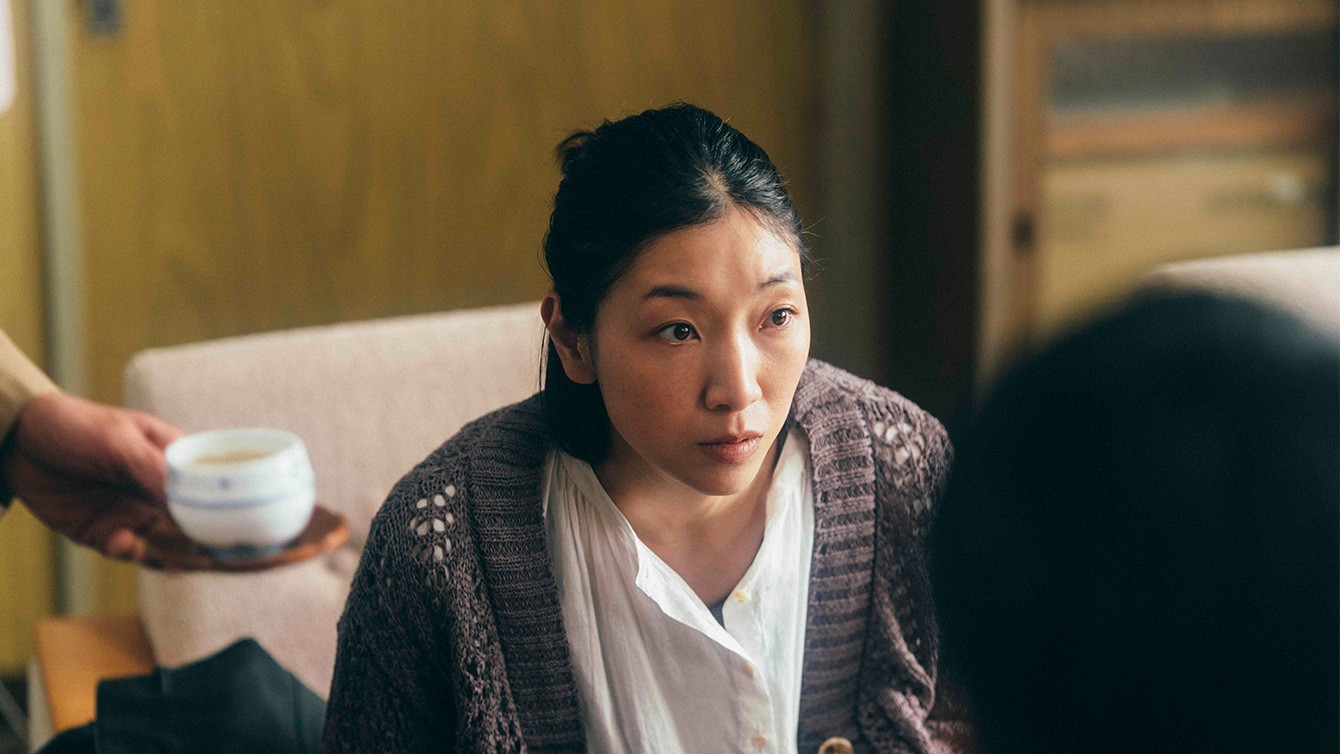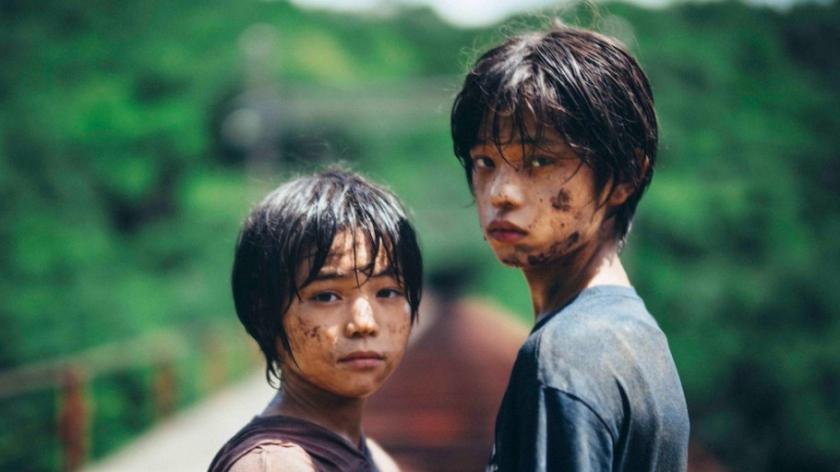Monster is one of those films that you really shouldn’t read too much about before you see it, and if you are anything like me, you’ll want to watch it all over again when it ends. It’s an intricately told psychological drama that grips from the start; a fire breaks out in a high rise building in an unnamed Japanese town. Neighbours watch from their balconies and gossip about the hostess bar in the building.
One of the gawpers from a nearby flat is Saori (Sakura Andô below, last seen in Kore-eda’s Shoplifters). Struggling to balance work and home, Saori is upset when she finds that Minato, her young son (Soya Kurokawa), has hacked off his own hair and wonders what’s troubling him. A young widow, Saori is trying to hold down her job in a laundry and give her son the attention he needs. There are problems at school and when she goes in to complain that his new teacher (Eita Nagayama) is abusive, things get very complicated. Who is telling the whole story? What is the school trying to cover up?
 Kore-eda is back on his native soil after making Broker in Korea, and is on top form here. Working from a script by TV writer Yûji Sakamoto, based on an experience from his own childhood, Monster is an intricately woven tale that shifts perspective over the course of the film. The last score written by Ryuchi Sakamoto before he died of cancer in 2023 enhances Kore-eda’s sensitive, humane direction.
Kore-eda is back on his native soil after making Broker in Korea, and is on top form here. Working from a script by TV writer Yûji Sakamoto, based on an experience from his own childhood, Monster is an intricately woven tale that shifts perspective over the course of the film. The last score written by Ryuchi Sakamoto before he died of cancer in 2023 enhances Kore-eda’s sensitive, humane direction.
Subtly divided into three chapters, we first see events from the perspective of Saori, a fiercely protective mother frustrated by the obfuscation she receives from her son's headteacher (the veteran actress Yūko Tanaka). She is equally protective of her school’s reputation and has her own grief to manage. We see the same classroom events play out again from the viewpoint of Minato’s young teacher; our understanding deepens and sympathies shift. In the third chapter, we are with Minato and gradually understand more about his complex friendship with Hori (Hinata Hiiragi), another boy in his class. The final third of the film focuses on the two boys and the world they have created together.
Kore-eda has always coaxed wonderful performances out of child actors, but the two young leads in Monster (both around 11/12 years old) are outstanding. The film has been compared with the Belgian drama, Close, which also focused on two boys struggling at school and on the verge of puberty, but Monster is infinitely superior in its subtlety. Unlike Close, it never overplays its hand to descend into melodrama or lets the camera voyeuristically linger on the boyish beauty of its leads. Monster is a haunting and exemplary piece of story telling about the influence of parents, both absent and present and the pressure children on the brink of puberty come under from their educators and peers.















Add comment